Pineapple Farm field employees earn, on an average 75% more than the current minimum wage.
Pineapple Farm packing station employees earn, on an average 112% more than the current minimum wage.
An average farm worker wage is 82% more than the current minimum wage.
Workers have the option to save from 1% to 6% of their salary and the company matches the equivalent percentage up to a maximum of 4% of their salary. These funds are also available to workers through loans at lower than commercial interest rates.
Housing program for workers: Phase 1
One hundred and thirty seven lots developed by the company and donated to the employees based on seniority and need. With proof of ownership of titled land the employees are eligible for government subsidized construction materials and loans. First phase investment: $500,000.
Above and beyond Government Social Security services, the company provides:
Medical Care: Full-time company doctor available at company furnished clinics. (This program also includes worker’s family.)
Dental Care: Campany provides full-time dentist. Materials and medications are paid for by the employee through easy payroll deductions. (This program also includes worker’s family.)
Optometry: Company sponsors annual eye examinations for all company employees and their families.
Company provides training for all new employees related to all safety issues including handling of agricultural chemicals. Refresher training are held every 6 months.
Company supports Nutrition Center for the community through the underwriting of facility maintenance, food programs for children, as well as activities and educational programs. Company provides funding and maintenance for community-owned child-care center.
Soccer fields, playgrounds, basketball teams, youth programs.
A football (soccer) field has been developed in the farm and is managed by a sport committee made up of farm laborers. Uniforms and equipment are provided for the various company teams. Baseball uniforms and equipment are now being purchased for the baseball teams also organized by the employees.
Uniforms for a women’s community football team have been provided and the company now is also sponsoring community leagues for both men and women.
For workers and/or their dependents (i.e. computers, English, literacy)
We have installed and are operating a computer lab to train field staff supervisors as well as the farm’s neighboring community with emphasis on the younger members of the community.
Scholarship programs for children of workers and non-workers for Primary School, High School as well as University studies are funded based on acceptable grades.
In addition there is a separate support program for workers to study English, technical courses, High School and selected University courses.
Company provides school supplies for all workers’ children at the beginning of each year.
We take wide-ranging and constant participation in the development and advancement of local communities.
Construction of new bridges and roads to connect communities and create jobs.
Diesel donations for local municipality machinery, meals for Operators are provided to ensure maintanence of rural roads. Materials are also provided for road maintenance.
Materials and labor force provided to replace local community day-care center roof; as well as to paint and generally refurbish.
Aided with food programs for students.
Provided new desks for students and painting of public schools.
Weekly pineapple supply to schools.
Supply of cleaning implements to schools.
Provision of building materials and workforce to construct meeting rooms and renovate Catholic church.
Donated land for the construction of Villa Franca social security clinic.
Aided with chemicals and fuel for Ministry of Health local efforts to control mosquitos which transmit the dangerous Dengue disease.
Donated land (1 ha.) for the construction of Villa Franca aqueduct.
Assisted with materials to repair the beds of the jail security officers.
Economic aid for senior citizens and local community fairs.
Sponsorship of Team Rynkeby, a Nordic charity cycling team that cycles to Paris to raise money for seriously ill children each summer. Chestnut Hill Farms decided to sponsor Team Rynkeby because we feel it is appropriate to expand our social responsibility projects to the areas where our fruit is shipped, and are proud to support their effort. Read more here.
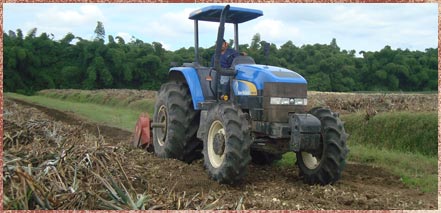
Pineapple plants after harvest leave an estimated 300 tons of pineapple material per hectare which are re-incorporated into the soil to maintain good soil structure, nutrient levels and to improve Cation exchange capacity of the soil.
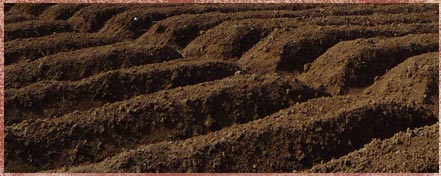
Following the incorporation of organic matter into the soil, beneficial bacteria and fungi are also applied to aid in the decomposition of the OM and increase the population of beneficial microorganisms that compete with parasitic soil borne organisms and thereby reduce the use of chemical pesticides. The addition of humic acids is also done to aid in this process.
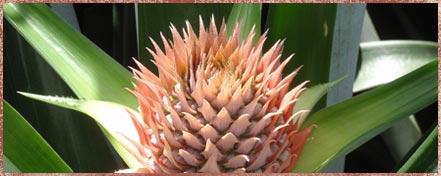
A beneficial microorganism (Bt) is also used to reduce the application of approved pesticides to control Thecla which is an insect that attacks the fruit.
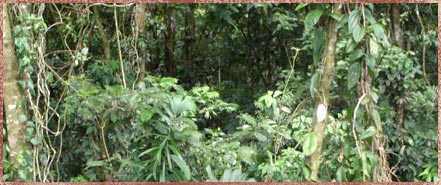
We maintain over 996 hectares of forest reserve which will continue to be protected and maintained to act as a barrier between pineapple plantings and the major water sources, reduce our carbon footprint as well as to maintain the natural wildlife of the region which includes populations of 3 species of monkeys, three toed sloths, and many classes of birds such as toucans and large and rare parrots. Inhabitants also include deer and wild turkey and two jaguars have also been spotted. Within the wooded areas, the equivalent of 40 hectares of native fruit trees have been planted to provide adequate food for these creatures.
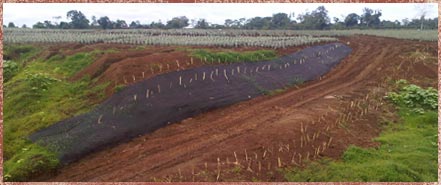
The rainfall in our farms can vary from 3,500 to 5,000 mm annually. That’s a lot of rain. That’s like pouring between 80 and 125 gallons per sq ft each year. This rain often comes hard and fast which means it’s essential to have excellent drainage. The pineapple plants are grown on raised beds to provide good drainage between rows. In addition superficial drains must be made to cross the beds in low areas to evacuate the water to larger secondary drains. If water is allowed to drain too fast, the water will begin to carry soil with it. This is known as erosion and this is a big no-no. To insure that the water does not flow too fast in the superficial drains some pineapple plants are also planted in the bottom of these drains to slow the speed of the drainage water and prevent erosion. The secondary drains are designed by topographers so they can be dug with precision so that the water flow is controlled and erosion is avoided. Grass is allowed to grow in the drains to further prevent erosion and is controlled by cutting and not by the use of herbicides.
Herbicide application after planting is done only on an as-needed basis and not with programmed blanket applications. Spot treatments are the usual form of application and the use of herbicides has been greatly reduced.
Preprogrammed applications of pesticides have been greatly reduced by programmed physical surveys of the fields to determine the real need for an application. It is then applied only if surveys indicate that there is a need.
Our reputation rides along in every box we ship. To that end we employ the strictest food safety standards and practices and do not deviate from this commitment
International Food Safety Regulations
Chestnut Hill Farms strictly complies with the most demanding regulatory requirements established by national authorities in the United States (FDA/FSMA), Canada (CFIA/Safe Food for Canadians Act), and the European Union (EU Regulation 396/2005 on Maximum Residue Limits – MRLs). Our commitment includes rigorous chemical residue controls to ensure our products consistently remain below the limits established by these jurisdictions.
Internationally Recognized Certifications and Audits
Packaging Material Control and Quality
At Chestnut Hill Farms, we implement strict protocols to ensure the safety of our packaging materials:
Traceability and Maximum Residue Limit (MRL) Controls
Our advanced traceability system allows us to accurately identify the origin and full journey of each fruit from harvest to the final consumer. This enables rigorous audits and ensures a swift and effective response to any eventuality.
Additionally, we implement a robust periodic monitoring and chemical residue testing program, ensuring strict compliance with MRL standards set by the U.S., Canada, and the European Union.
At Chestnut Hill Farms, we are committed to a safe, transparent, and sustainable supply. We would be pleased to provide additional information about our practices and how we work to ensure the safety of our products and care for the environment.
For more information, contact us at 305-592-6969.